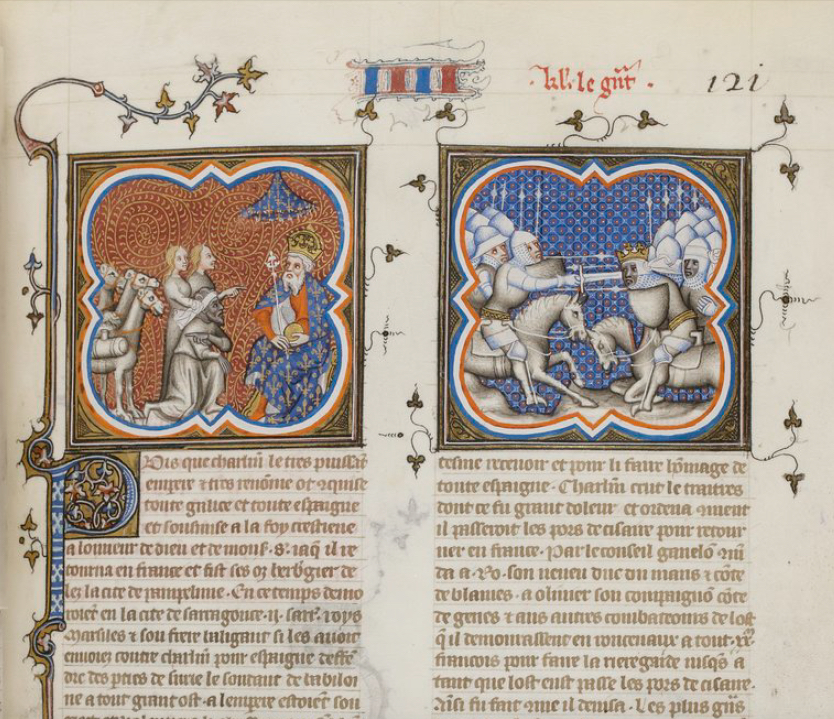|
In 1040, the Song of Roland appears as a ballad to commemorate the Battle of Roncevaux in 778 against the Muslims, during the reign of Charlemagne. This tragic tale of war and the death of its fearless hero Roland is probably chanted in the royal courts of Europe as well as sung to pass the time as pilgrims journeyed to a shrine of a patron saint.
One of the destination points for pilgrims was along the Camino de Santiago. Camino means road, and Santiago is a corrupted form from the Gaelic of the Latin words Sancti Yacob. This is the famed road of Saint Jacob the apostle. Today we know him as James, due to the Latin influence on the emergence of early English as jamon, a leg of ham, became the linguistic equivalent to Jacob, the heel grabber. You can experience a reenactment of the Song of Roland performed by Norwegians here.
1 Comment
|
AuthorPeter Hebert Archives
March 2021
Categories |

 RSS Feed
RSS Feed
